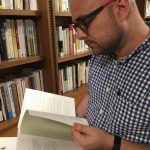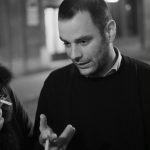Jerôme de Wit (University of Tübingen)
9 March 2018
When opening a book on the history of Korean literature, it is common that a clear distinction is made by the author between pre-modern and modern Korean literature. Questions that are not often dealt with by scholars of Korean literature are what arguments are used to legitimize such a distinction, or even whether such a distinction truly exists.
An often used explanation for arguing for a clearly visible transition is that literary works in the pre-modern period reflected the collective and impersonal life experiences of people in small communities, while modern literature diverges from this as it portrays the individual. An example of this can be seen in Peter Lee’s A History of Korean Literature, when he explains that the modern poem: “breaks with the tradition of generalized and impersonal poetry and presents itself with the immediacy of something distinctive and individual.”
‘Individuality’ is therefore used as one of the central categories of modern literature and the lynchpin on which the transition between the pre-modern and modern rests. Does this mean that the roots of modern individuality cannot be found in pre-modern times? Is our way of thinking about ourselves a very recent phenomenon?
In this class my aim is to adjust this picture and to approach these questions through an analysis of “pre-modern” and “modern” texts. I argue that individualism clearly already existed in the pre-modern. What changed is that historical and social circumstances made intellectuals and writers in the early twentieth century foreground the individual in society, but that their aim was to do so only in order to put the individual in a different collective: that of the nation.
Jerôme de Wit received his Ph.D. from Leiden University, Netherlands. He is a specialist on North and South Korean Wartime Literature and modern Korean culture. His research interest in Korean culture is focused on public discourses concerning history and society and how cultural sources can provide us with different viewpoints on debates such as nationalism, identity, and history. His recent projects deal with such topics as post-colonialism in contemporary South Korean alternate history novels, a study on North Korean children’s animated cartoons, and a study on the representation and the changes in identity in the literature and movies of ethnic Koreans in China.


